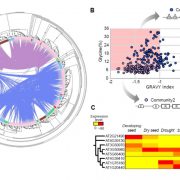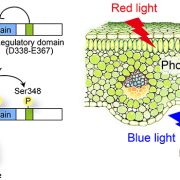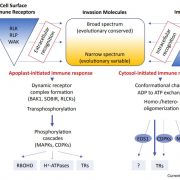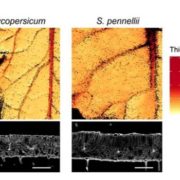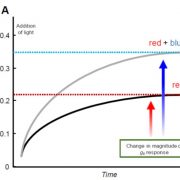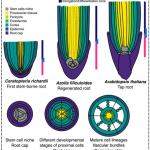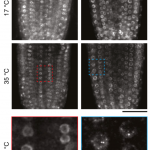KIN10 promotes stomatal development through stabilization of the SPEECHLESS transcription factor (Nat. Commun.)

Plants communicate with the environment through stomata (i.e., pores found on leaf surfaces) and regulate gas exchange depending on internal and external cues by optimizing stomata density. Still, how plants integrate metabolic and environmental signals remain to be determined. Here, Han and colleagues discovered that stomatal index in Arabidopsis leaves decreased under conditions associated with mild energy starvation (e.g., Short Days and hypoxic liquid culture), but the application of exogenous sugar partially reversed this trend. The authors found that this process is mediated by KIN10, the catalytic α-subunit of the energy sensor Sucrose non-fermenting1 (SNF1)-related kinase 1 (SnRK1). As supporting evidence, experiments in liquid medium containing 1% sucrose showed that stomatal index was higher in KIN10 over-expressing lines and lower in kin10 mutants as compared to wild types. Sucrose treatment did not alter KIN10 transcription but activated KIN10 translation in wild-type and transgenic plants. Upon accumulation, KIN10 interacted with the master regulator SPEECHLESS (SPCH) in the nucleus of the stomatal-lineage cells, stabilized SPCH protein through phosphorylation and promoted sucrose-induced stomata formation. To conclude, KIN10 represents a key component of the positive feedback loop which allows stressed plants to recover from environmental fluctuations associated with energy starvation, such as cloudy weather or flooding. Indeed, plants resume photosynthesis in sunny days and start producing sugar. As a result, plants increase stomata density and boost carbon assimilation after the stress. (Summary by Michela Osnato @michela_osnato) Nat. Commun.10.1038/s41467-020-18048-w



